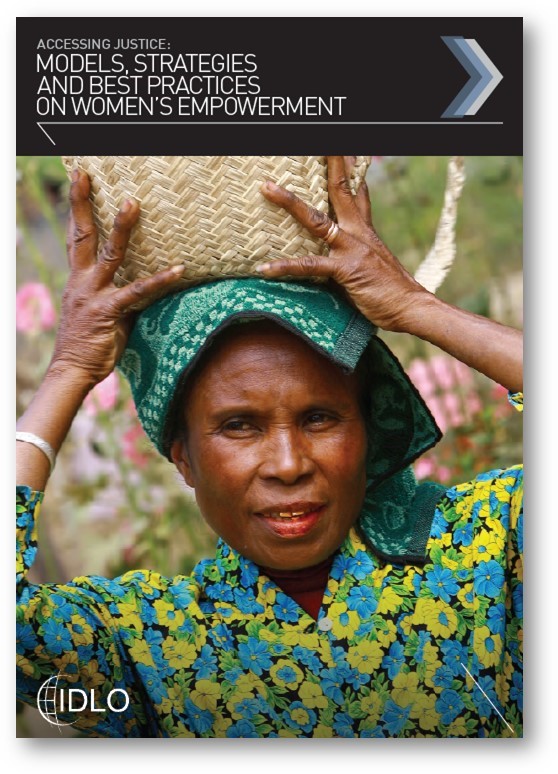Direct Link to Full 74-Page IDLO Publication
Link to 12-Page Report Summary

By Irene Khan, Director-General IDLO
Far too often, in far too many countries, women cannot find justice. They are denied the very essence of the rule of law — that we are all equal, and equally protected by the law.
Gender equality is increasingly a feature of national constitutions, yet the law frequently continues to restrict women’s rights and freedoms, dictates their submission to male relatives, and limits what women may own or inherit. Tragically, even as it interferes with how women live their lives, the law fails to protect them from gender-based violence.
Governments and the international community have invested heavily in legal systems. In some places, the situation for women is improving. In many settings, however, women still suffer appalling discrimination and violence. Even where women have rights, they may not know they have them. Add to that a host of economic, social or cultural barriers — poverty, poor access, lack of education, social stigma, family pressure, fear of violence, the unfamiliarity with, or lack of confidence in, state institutions — and it is easy to understand why women rarely turn to courts and the legal system for justice.
More often than not, whether out of choice or necessity, women look to informal set-ups in their rural communities to settle grievances. Matters that concern them most frequently — family disputes, inheritance, access to land and ownership of it — are usually handled at the village or community level. It costs less, the process is less formal, the people are familiar, and one need not travel far.
This is not to say that informal justice systems provide fair outcomes for women. On the contrary, many such systems raise serious human rights concerns. Customary justice may reinforce traditional hierarchies and discriminatory practices, and exclude women from the decision-making process. It often fails to recognize marital rape or domestic violence as crimes; in some cases, it encourages brutal treatment of women. Women’s own experience, in fact, suggests the issue at stake is not the choice of one form of justice over another. No measure taken in isolation — whether it is a law banning gender discrimination, or the nomination of women leaders in a customary justice system — will in and of itself bring about change, as long as the political, social and economic factors that feed injustice and gender discrimination are left unaddressed. What matters is to ensure that women do get justice, no matter where they seek it. And even as attempts are made to improve formal legal systems, customary systems cannot be ignored.
In a world where plural justice systems are a reality and show every sign of enduring, the best answer is therefore to empower women, so that they may themselves bring about the change to which they aspire. Systems, whether formal or informal, must become equally responsive to women’s demand for justice. Women’s empowerment is fundamental to creating a culture of justice.
I hope IDLO’s report, Accessing Justice: Models, Strategies and Best Practices on Women’s Empowerment, will be seen as an important contribution to women’s struggle for justice and equality.

Leave a Reply